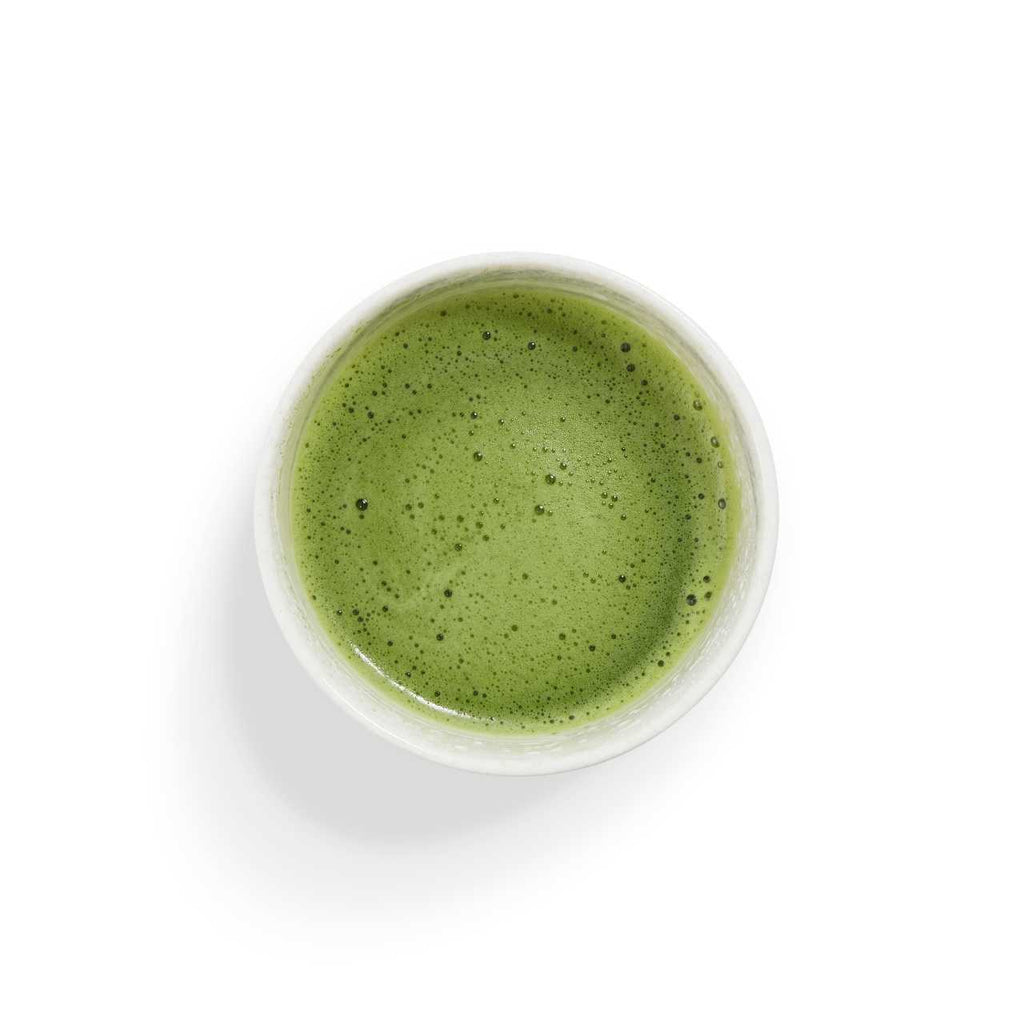
Looking for a healthier alternative to coffee? You need matcha in your life. Here's our 7 reasons to switch from coffee to matcha.
What is matcha?
Originating in Japan hundreds of years ago, matcha green tea is taking the world by storm. Made from the same leaves as green and black tea, matcha involves grinding whole green tea leaves into a fine powder. This means matcha powder preserves more nutrients and flavour, so it’s super healthy as well as delicious.
What does Matcha taste like?
Brew up the green powder and you’ll find yourself with a bright drink with strong yet well-balanced, earthy flavours. Most matcha has a deep, grassy taste with a hint of nuttiness. It’s often described as umami, making you want to come back for another sip every time.
Read our complete Matcha Tea Taste Guide to find out more...
Does Matcha contain caffeine?
Matcha does contain caffeine, although it’s less than most cups of coffee. On average, a cup of matcha contains about 70mg of caffeine, in comparison to 100-140mg in a cup of coffee. But as you’ll find out soon, matcha can keep you feeling alert for much longer than coffee can.
How much matcha should you consume?
You can consume up to 2-3 servings of matcha per day. The recommended serving size for Matcha is 1-2g per serving.
Matcha Tea Benefits over Coffee
While coffee and matcha both have their own health benefits, matcha is better for you overall and has fewer potential side effects. It’s gentler on the body and is good for you in so many different ways.
For a deep dive into the health benefits of drinking matcha, read are blog Matcha vs Coffee.
If you want all of the caffeine with none of the drawbacks of coffee, matcha is the way to go. Need more convincing? Here are seven reasons why matcha is healthier than coffee:
 1. Matcha is full of antioxidants
1. Matcha is full of antioxidants
Like its cousin, green tea, matcha is full of powerful antioxidants (polyphenols). And because of the way it's made - grinding up the full leaves - even more of the good stuff is retained by matcha powder. In fact, matcha is one of the most antioxidant-rich foods around.
Antioxidants have multiple different benefits. They can help fight disease and infection, slow ageing, reduce inflammation, prevent some forms of cancer, and much more. There are about 10 times as many antioxidants in a cup of matcha as in green tea and coffee doesn’t contain any.
2. Matcha regulates your energy
Ever had the jitters after drinking a cup of coffee? Or felt yourself crash a few hours later? That’s because of the way coffee releases its caffeine. It happens quickly in a flash. This means coffee can make your adrenaline spike, plus it can affect your glucose and insulin levels, so you could be left shakey and hungry.
Matcha, however, has a much “cleaner” caffeine high. The caffeine is released slowly, giving you a longer, smoother hit of energy. This is down to the amino acid L-Theanine, which reduces how quickly the body absorbs caffeine.
While matcha contains less caffeine than a cup of coffee, it could keep you feeling alert for much longer — some say from three-six hours. And all this without the risk of the jitters. Because of this, matcha could be a good alternative for anyone who wants to enjoy an energy boost but is particularly sensitive to caffeine
3. Matcha can calm your nerves
The same amino acid that slows caffeine absorption can also make you feel calmer. The L-Theanine found in matcha has been proven to help people sleep. When combined with matcha’s gentle caffeine release, it also leads to a feeling of calm.
Some people can find that coffee, on the other hand, worsens feelings of anxiety. Drinking more than one cup a day can make you more likely to feel worried. Plus, you may experience physical signs of anxiety, like heart palpitations or shaking.
There’s a reason Buddhist monks use matcha to meditate: it makes your brain feel clear, calm and yet alert.
4. Matcha isn’t addictive
If you’ve ever tried to quit a coffee habit you might have noticed some side effects. Headaches, fatigue, nausea and muscle pain are some of the symptoms commonly associated with coffee withdrawal.
Withdrawal symptoms are caused by the coffee energy spike. Because it happens quickly, your body craves more caffeine to replicate the boost it just had. When you go without, you really notice the difference.
Luckily, you won’t have the same problem with matcha. Your body won’t become dependent on it in quite the same way so if you go a few days without a cup, you’ll still feel right as rain.
5. Matcha is better for your teeth
Unlike coffee, matcha won’t stain your teeth. Even better, it can actually improve your oral health.
The superpowered antioxidants found in matcha fight the bacteria that grow in your mouth and cause damage. At the same time, matcha can reduce plaque build-up and relieve the symptoms of gum disease.
Switching to matcha will mean no coffee breath and better oral hygiene overall.
6. Matcha is helpful for weight loss
Matcha has been shown to improve metabolism and burn fat by tackling weight loss from both sides which will increase higher energy levels and putting you into fat burning mode safely, without raising your blood pressure or cortisol levels.Studies have found that matcha is particularly good at increasing fat loss when consumed before workouts.

7. Matcha is easy to prepare
Another bonus? A cup of matcha is easier to get right than brewing a great cup of coffee. And you’ll need less equipment.
Once you’ve perfected your matcha making technique, you’ll make the perfect cup every time in less than 30 seconds.

How do I make Matcha?
The process is simple: whisk matcha powder into hot water to get your brew ready. If you’d prefer a matcha latte, you can mix the powder with steamed milk. No massive espresso machine, scales or grinder needed.
How do I get started with matcha?
For beginners, we’d recommend choosing our complete matcha set which includes everything you need to start brewing: whisk, bowl and the matcha itself.
Once you have the tools nailed down, explore the varying tastes of our matcha blends until you find your favourites.
Try out our Ceremonial Grade with our choice your own sample with purchase.
And remember, the better quality the matcha, the better the taste.

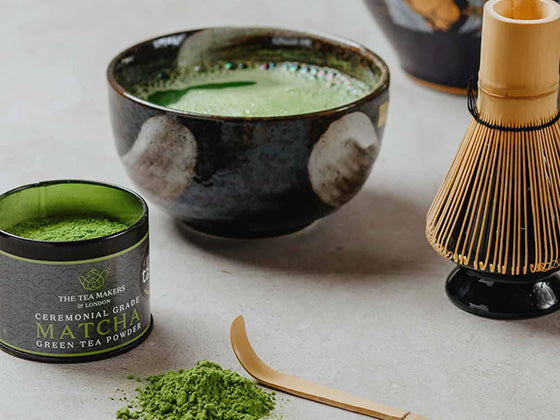
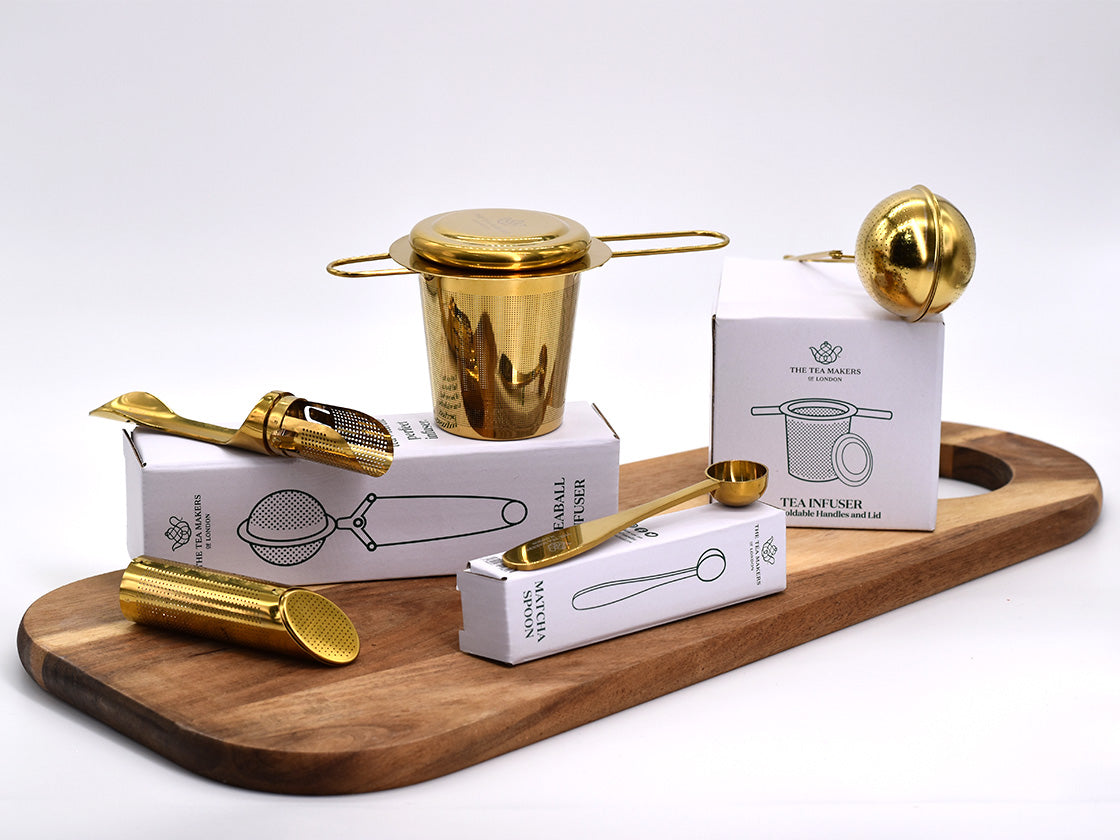

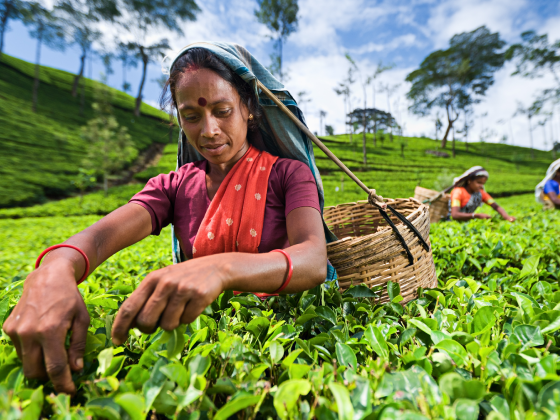
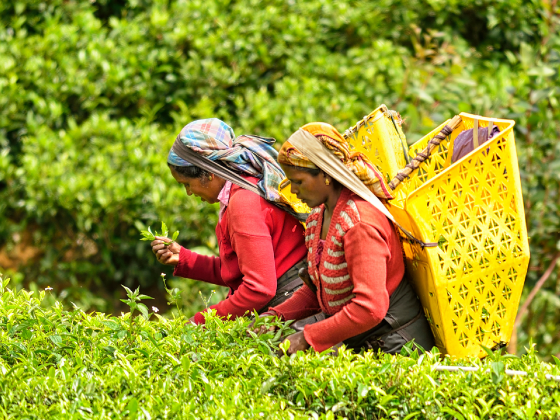

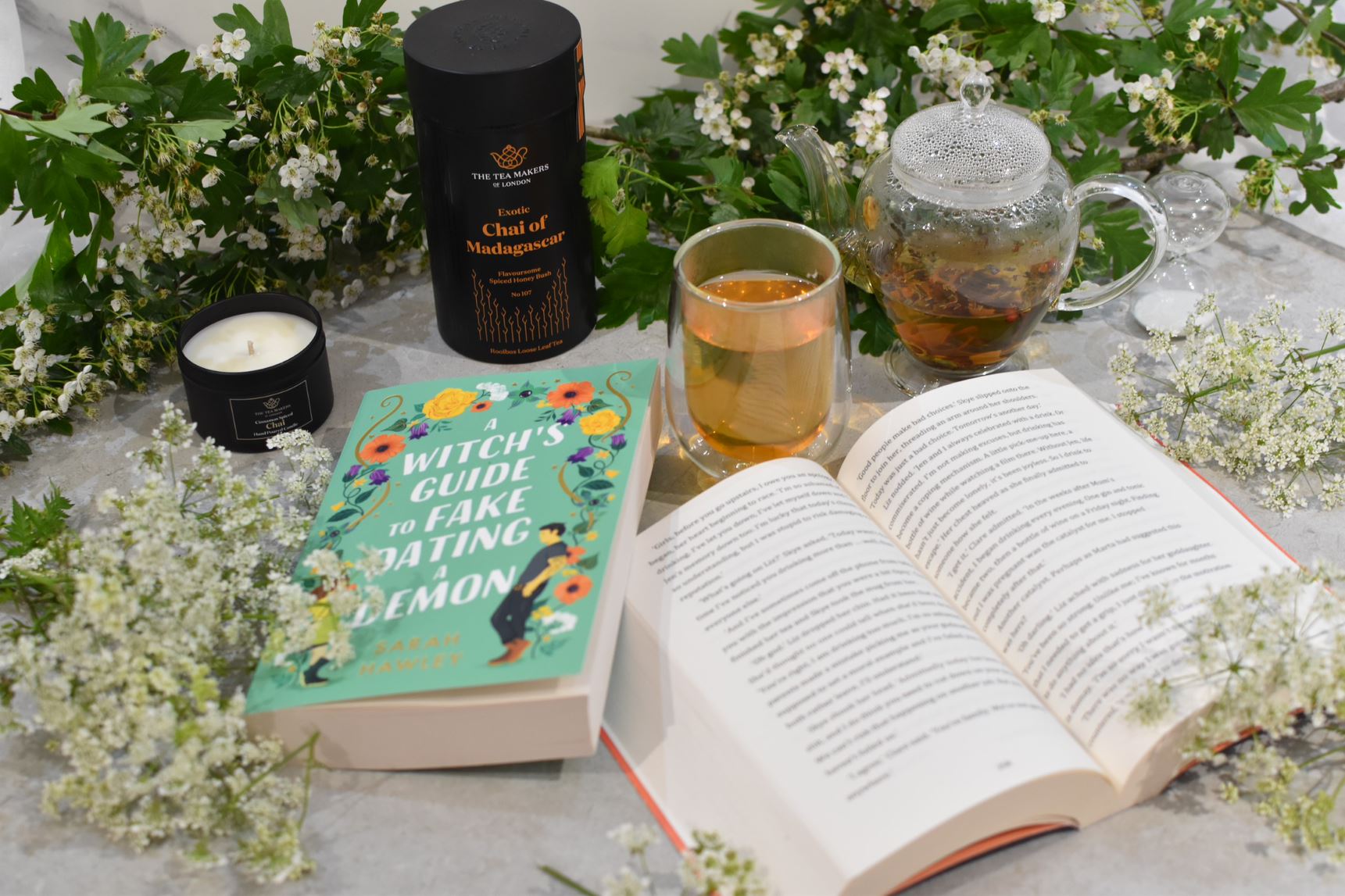

6 comments
Emily
I used a small sieve to sift the dry matcha lumps out and it worked really well. I love the way matcha gives you energy without making you irritable or nervous the way coffee does.
I used a small sieve to sift the dry matcha lumps out and it worked really well. I love the way matcha gives you energy without making you irritable or nervous the way coffee does.
Tess
I have always liked Japanese green tea but switched to matcha recently for its health benefits and the caffeine boost but I do not wish to have to whisk each time. Not everyone wants to carry a whisk when on the move or travelling. Thus I am restricted to only one brand, Tsuji, that is highly soluble in hot water/oat milk and comes in a small easy to carry and seal packet.
I wonder. Why do the matcha makers not make more highly-soluble non-lumpy options? Surely it is simply a matter of grinding the matcha tea into the finest (gold) dust!
I have always liked Japanese green tea but switched to matcha recently for its health benefits and the caffeine boost but I do not wish to have to whisk each time. Not everyone wants to carry a whisk when on the move or travelling. Thus I am restricted to only one brand, Tsuji, that is highly soluble in hot water/oat milk and comes in a small easy to carry and seal packet.
I wonder. Why do the matcha makers not make more highly-soluble non-lumpy options? Surely it is simply a matter of grinding the matcha tea into the finest (gold) dust!
Thelma
I loved the taste of right from the beginning of trying it I put into my smoothie trying to find the right one to stick with any best suggestion I looking to place a order now it really is good I’m a tea pearson
I loved the taste of right from the beginning of trying it I put into my smoothie trying to find the right one to stick with any best suggestion I looking to place a order now it really is good I’m a tea pearson
CraigE
From a 70-year old lifelong black coffee drinker: Retired, I’d drink my morning Joe—and shake and worry, mouth drawn down showing yellowed teeth. Stupid, right, because I had no reason to caffeinate anymore. Switched to matcha green tea a few months ago and once I got past the “grassy taste”, found it to be the perfect ‘relax-and-enjoy-the-sun-rise’ beverage. I’m Buddhist monk composed, yet alert and bright. Because I’ve occupied it for seven decades, I can tell that my body loves it, too!
From a 70-year old lifelong black coffee drinker: Retired, I’d drink my morning Joe—and shake and worry, mouth drawn down showing yellowed teeth. Stupid, right, because I had no reason to caffeinate anymore. Switched to matcha green tea a few months ago and once I got past the “grassy taste”, found it to be the perfect ‘relax-and-enjoy-the-sun-rise’ beverage. I’m Buddhist monk composed, yet alert and bright. Because I’ve occupied it for seven decades, I can tell that my body loves it, too!
The Tea Makers Team
Hi Emran,
As our Ceremonial Grade Matcha is in powder form this comes in loose or in individual sachets.
We do however also have Sencha Iri Matcha and Genmaicha Iri Matcha teas which you can use in our reuseable fill your own teabags :)
Hi Emran,
As our Ceremonial Grade Matcha is in powder form this comes in loose or in individual sachets.
We do however also have Sencha Iri Matcha and Genmaicha Iri Matcha teas which you can use in our reuseable fill your own teabags :)
Antonia
I trying it today for the first time. I love it
I trying it today for the first time. I love it